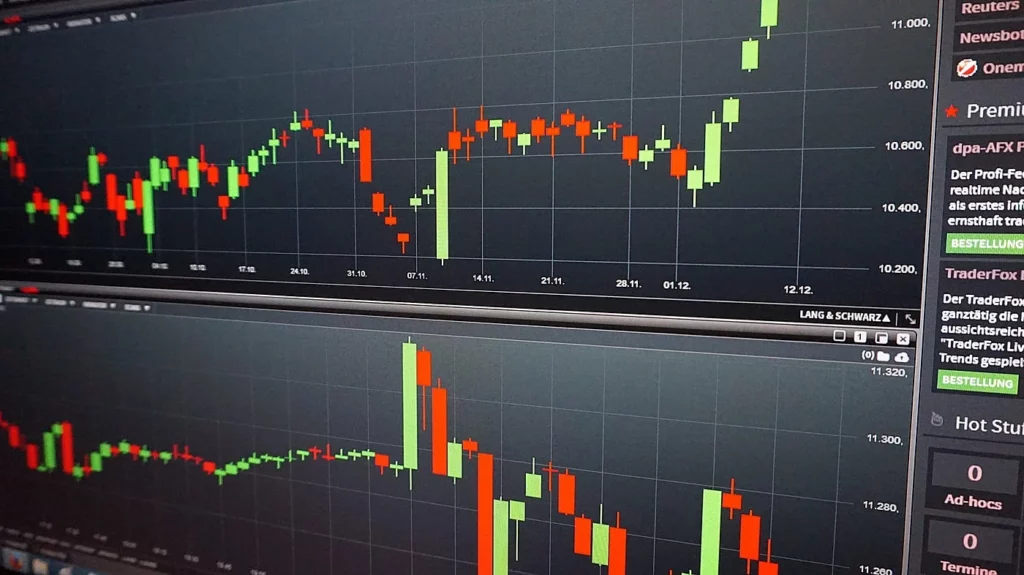Meaning of Trading
Essentially, trading is the exchange of products and services between two parties. The parties involved in this context are investors and traders who are trading stocks in various corporations. The stock market is where trading in stocks occurs. A wider range of consumers may now access the stock market thanks to online trading and investment.

History of Trading
Since the advent of agriculture, or human civilisation, trade has existed. However, different communities have traded in different ways. In large part because scattered human societies prevented their merger into a single system. However, in the past, the barter system, in which commodities and services were exchanged for one another in many civilizations, was a common type of trading.
Given the absence of any fundamental guidelines for determining the worth of goods, the barter system was found to be inconvenient. This difficulty paved the way for money, which served as the yardstick by which the worth of every good was judged.
This discovery served as the catalyst for a number of economic and financial advancements, including the creation of the credit facility and share trading, among others.
The creation of joint-stock corporations in Europe ushered in the era of stock trading, which was crucial to the rise of European imperialism. Numerous European locations saw the emergence of unauthorized stock exchanges. The Dutch East India firm issued its shares through the Amsterdam Stock Exchange and became the first joint-stock firm to trade its shares publicly.
Due to their success in promoting both economic growth and geographic expansion, joint-stock corporations have become a staple of the financial industry. The Bombay Stock Exchange, founded in 1875, was the first marketplace for internet trading in Asia and India.
Types of Trading in Stock Market
Primarily, there are five types of share trading. These are –
1) Day Trading
In this type of trade, stocks are bought and sold all in the same day. In the stock market, a single day is defined as 9:15 am to 3:30 pm on a weekday (excluding market holidays). In the case of day trading, people keep stocks for a short while or for a long time.
A trader engaged in such a deal must complete it before the market closes for the day. It is well-liked for profiting from modest changes in stock NAV.
Day trading involves expertise in financial markets, in-depth knowledge of market volatility, and a sharp feel of the ups and downs in stock prices. As a result, it is generally carried out by seasoned traders or investors.
2) Scalping
It’s also referred to as microtrading. Both day trading and scalping are categories of intraday trading. Scalping is the practice of frequently reaping modest profits, from a dozen to a hundred in a single trading day.
Nevertheless, not every transaction results in a profit, and occasionally a trader’s gross losses may outweigh their earnings. In this instance, compared to day trading, the holding duration for assets is shorter; people retain equities for no more than a few minutes at most.
The frequency of transactions is made possible by this function. Scalping involves similar skills to day trading, including knowledge of market trends, proficiency, and the ability to respond quickly.
3) Swing Trading
Utilizing this type of stock market trading allows investors to profit from transient stock trends and patterns. Swing trading is utilized to generate profits from stocks within one to seven days of purchase. In order to properly execute their investment goals, traders perform a technical analysis on the stocks to determine the movement patterns they are using.
4) Momentum Trading
In case of momentum trading, a trader exploits a stock’s momentum, i.e. a substantial value movement of stock, either upwards or downwards. A trader tries to capitalise on such momentum by identifying the stocks that are either breaking out or will break out.
In case of upward momentum, the trader sells the stocks he/she is holding, thus yielding higher than average returns. In case of downward movement, the trader purchases a considerable volume of stocks to sell when its price increases.
5) Position Trading
Instead of focusing on short-term price fluctuations, position traders hold securities for months in an effort to profit from the long-term potential of companies. For those who are not market experts or regular market participants, this type of trading is ideal.
Current Impact of Online Trading
The stock market has evolved tremendously as a result of the internet. Securities are becoming easier for laypeople to obtain and use. Through internet trading in India, a person may now trade in the stock market with ease.
Since the introduction of online trading, mutual funds have also experienced tremendous growth in popularity. Nowadays, people have direct access to mutual funds and other assets thanks to the huge selection of possibilities online. Investors now have more opportunities to trade actively and speculatively, improving their chances of making money.
FOR MORE INFO CLICK THIS SITE:https://learningsharks.in/
FOLLOW OUR PAGE:https://www.instagram.com/learningsharks/?hl=en
